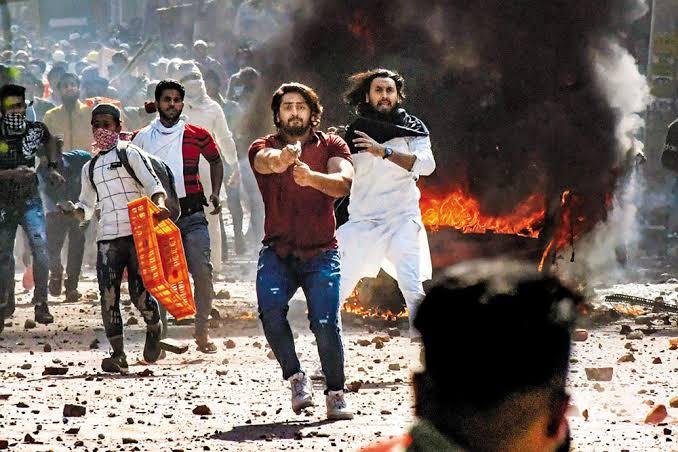Justice Awaits for Victim of Delhi Riots


A lawyer speaks in the courtroom on behalf of his/her client and enjoys the trust as the client knows that lawyer will safeguard the interests come what may. These are high standards of professional ethics of legal profession. In order to understand the absolute antithesis of this simple principle, one has to scrutinise the happenings in Delhi High Court where many bail applications of the accused in Delhi Riots cases were/are being heard.
The AAP government in 2015 appointed Rahul Mehra, advocate, co-founder, and spokesperson of the AAP as Standing Counsel (criminal) in the Delhi High Court and in that capacity has been representing Delhi Police in the Delhi HC.
There were many issues since the beginning of the aforesaid appointment, problems became acute for Delhi Police when the bail applications of various accused of Delhi riots and those arrested under anti-terror law UAPA were being heard. The Delhi Police, having lost trust, faith and confidence in the said Standing Counsel, requested the Union of India for appointment of Special Public Prosecutor in place of Rahul Mehra to represent it in the Delhi riot cases in the High Court.
But generally, the loss of trust by the client in the lawyer is on account of the conduct of the lawyer in the court and/or during professional interactions between the two apart from reasons related to fees and so on. The Union of India accordingly appointed Special Public Prosecutors after the due approval of the Delhi government.
Special Public Prosecutors so appointed were well known lawyers Solicitor General of India Tushar Mehta, ASG Aman Lekhi, ASG Maninder Acharya and other lawyers as SPP. The Union of India was well within its right to appoint the SPPs as law & order and Delhi Police is in their exclusive domain in the scheme of distribution of powers for Delhi government and so upheld by the Hon’ble Supreme Court in 2018.
However, the standing counsel in question opposed the Special Public Prosecutor representing Delhi Police in the Delhi High Court in Delhi riots cases witnessing acrimonious scenes in court.
Delhi government withheld the permission to Delhi police for filing chargesheet against Kanhaiya Kumar for a very long time. The crucial point is that Delhi Police were being forced to be represented by AAP-appointed lawyer when Delhi Police did not want him to represent. Clearly, the said acts of the standing counsel and his legal wisdom was being coloured and influenced by the AAP and their politics of minority appeasement.
The AAP government through its legal instrumentality converted Delhi High Court into a ‘turf war’. This compromised the interest of Delhi Police. A lawyer is supposed to represent his client in letter and spirit and on the instructions of his client failing which such acts become illegal, unethical and immoral with ‘Conflict of Interest’ written in bold letters all over the place.
In such situations, a lawyer is expected to disengage himself from such cases in which a U-turn was taken.
The way forward is that the Union of India brings about amendment to the law of appointment of lawyers for agencies of central government in Delhi by bringing it under exclusive domain of the Union of India so as to avoid subversion of legal system as enumerated in this article.
It is only then the judiciary will be able to deliver justice with the able assistance of both the public prosecutors and defence counsels, failing which people tend to lose faith in the judicial system which till now has ably held the ground.
The Delhi Riots cases are crucial and important as the facts and material unearthed so far establish military precision, advanced planning, recce, organisation, command and control structure, and elaborate communication system for initiating and continuing the ghastly riots.
The AAP government appears to be not very keen that the riots cases are brought to the logical conclusion and guilty be punished with the full force of law on account of minority vote bank politics.
The Delhi riot’s harsh reality and dangers being posed to the nation have been vividly brought to the notice of the public by newspapers, media, and fact-finding committee reports. The courts have to lift the veil to see the sinister design and plot of the Delhi riots and not allow anyone else to obstruct justice.
DISCLAIMER: The author is solely responsible for the views expressed in this article. The author carries the responsibility for citing and/or licensing of images utilized within the text.
